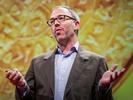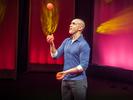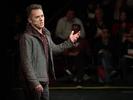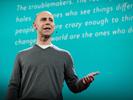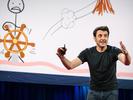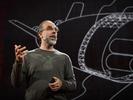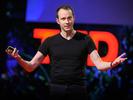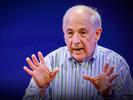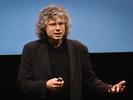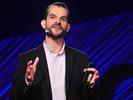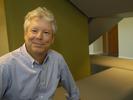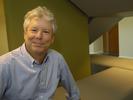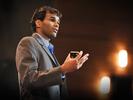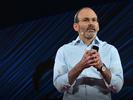NPR/TED Staff appears in the following:
How Will Big Data Change The Way We Live?
Friday, September 09, 2016
What's the future of technology and design that's driven by Big Data? Kenneth Cukier of the Economist looks at what's next for machine learning and human knowledge.
When Was The Last Time You Did Absolutely Nothing?
Friday, August 26, 2016
Mindfulness expert Andy Puddicombe says one path to happiness is ten minutes, each day, to stop and enjoy the sensation of doing nothing.
Can Slow-Moving Art Disrupt Our Hectic Routines?
Friday, August 26, 2016
Early in his career, video artist Gabriel Barcia-Colombo noticed the way people breeze past works of art. He describes how his deliberate, slow-moving installations encourage people to stop and think.
Can Slowing Down Help You Be More Creative?
Friday, August 26, 2016
Despite being a self-described 'pre-crastinator, psychologist Adam Grant says those who slow down — even procrastinate — tend to be more creative, original thinkers.
What Happens In The Brain Of An Extreme Procrastinator?
Friday, August 26, 2016
Blogger Tim Urban explains his process of extreme procrastination in which his brain wages war between instant gratification and the moment of pure panic just before a deadline.
Why Would Millions Tune Into 'Slow TV'?
Friday, August 26, 2016
Norwegian TV producer Thomas Hellum describes why his programs — which feature hours of train rides, fishing, and knitting — help viewers slow down and return to life in 'real time.'
What Can We Gain By Writing A Letter By Hand?
Friday, August 26, 2016
Lakshmi Pratury reflects on the dozens of letters she received from her father, while he was alive, and on the painstaking time it takes to pen a letter.
When Beliefs Fail Us, How Do We Move Forward?
Friday, July 29, 2016
Over the course of his life, many of Casey Gerald's core beliefs have failed him. He says he's learned that clear-eyed doubt can sometimes be better than belief.
When A Project Fails, Should The Workers Get A Bonus?
Friday, July 29, 2016
Entrepreneur Astro Teller rewards colleagues when their ambitious projects fail. Teller says this helps people take risks so they can achieve their "moonshot" goals, like a balloon-powered internet.
How Can Success Still Make You Feel Like A Failure?
Friday, July 29, 2016
Writer Lidia Yuknavitch's early failures made her feel unworthy of success. Now, she says, those moments push her to find worth in herself as a writer.
Why Do Complex Systems Thrive on Trial And Error?
Friday, July 29, 2016
Economist Tim Harford identifies similar characteristics in successful industrial and economic systems. They work much better, he says, when they're constantly evolving through trial and error.
Are You Ready To Take The 'Human' Test?
Friday, July 15, 2016
If you've ever wondered: Am I human? — humorist Ze Frank offers an idiosyncratic quiz that can help provide the answer.
Where Does Consciousness Come From?
Friday, July 15, 2016
Philosopher John Searle argues that consciousness is what makes us human. He makes the case for studying consciousness and accepting it as a biological phenomenon.
How Do Nature And Nurture Combine To Make Us Who We Are?
Friday, July 15, 2016
Psychologist Steven Pinker describes how far we've come in understanding how both nature and nurture make us ... us.
How Will 'Cut And Paste' Technology Rewrite Our DNA?
Friday, July 15, 2016
Biochemist Sam Sternberg describes how recent developments in gene editing technology may help end many diseases and even control our own evolution.
How Are Health Workers Putting An End To Guinea Worms?
Friday, June 24, 2016
Professor Richard Thaler returns to the show to talk about how a nudge has essentially eradicated guinea worm disease in Africa.
Can Coding Help Girls Take Risks?
Friday, June 24, 2016
Girls Who Code founder Reshma Saujani offers a creative solution to gently push young women into making bold decisions. Her program aims to close the gender gap in computer science.
What Is A Nudge?
Friday, June 24, 2016
How can a simple adjustment - a nudge - change our behavior for the better? Professor Richard Thaler says his "nudge theory" can make it easier for people to save money, eat healthily and more.
How Can A Nudge Save A Life?
Friday, June 24, 2016
We have the treatments to end health problems like infant diarrhea. Sendhil Mullainathan says the "last mile" nudge is to encourage people to use them.
Can Mindfulness Help You Quit Smoking?
Friday, June 24, 2016
Psychiatrist Judson Brewer describes how patients who practice simple mindfulness techniques can kick unhealthy habits.
